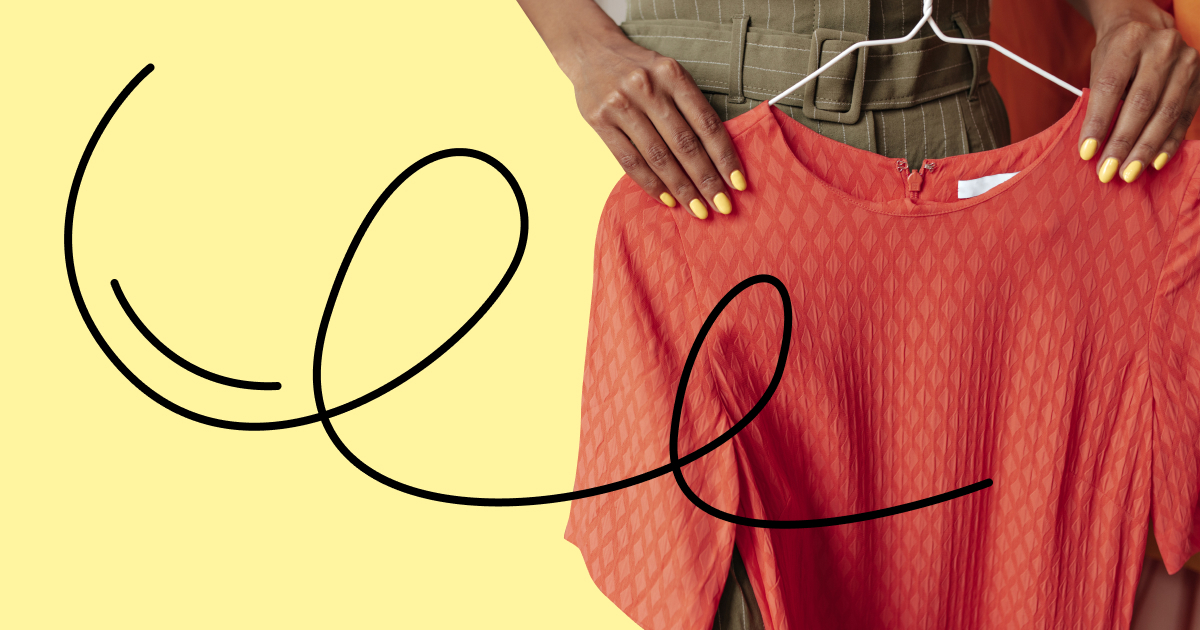The first week of 2024 is nearly over, which means out with the old and in with the new ✨ and what better place for the old to become new again than online selling platforms such as Vinted, Depop and eBay!
Many of us are partial to a new year clearout – unwanted clothes, abandoned toys and many other novelty items hidden under our beds are bagged and boxed up 🧹
But, if you’re embracing the new year, new me mantra via second-hand selling platforms, you should be aware of the tax implications. Nothing has changed strictly speaking tax-wise, but if you’ve seen that HMRC is trending in the news, you’ll know that 2024 has so far been the year of low-level tax-reporting hysteria. Yeah, it’s a thing.
No need to worry, though, as we’re going to explain exactly what these tax implications are, and why people are talking about it 💪
Tell me more!
Whether you’re an old-timer or a newcomer to the second-hand selling world, you should know that 2024 is well and truly underway, with things already changing in the realm of online selling!
As of Monday 1st January 2024, digital sales platforms (that’s any app or website that connects sellers and consumers 🤝), will be collecting information on their sellers.
What type of information, you ask? Well, not your phone number or address – they probably have these already. No, we’re talking about your sales 👀
Why? Because HMRC told them to – the tax office took starting the new year with a bang very seriously 💥
We know this may come as a shock to second-hand sellers, but, fear not! This isn’t as drastic as it sounds.
Whilst digital platforms are collecting information on your sales, it’s actually your profits that HMRC are interested in! We know, it can all be rather confusing. So let’s make it clear from the get-go!
What is Profit?
Profit is how much money you make once you subtract the money you’ve earned from selling an item from the original price you paid 💰
So, to be taxed on your second-hand selling, you’d need to be making a profit, which generally isn’t the case for people having a new year clear-out 👗
For example, Emma bought a pair of Topshop Jeans for £40. She doesn’t like them anymore and sells them for £2 on Vinted. She’s not making a profit. She’s decluttering her wardrobe and adding a few pounds to her rainy day fund in the process ☔
Tariq, on the other hand, regularly purchases clothes at a low cost from wholesalers and resells them on Depop at a much higher price. He’s making a profit.
So, if you’re an Emma, you’ve got nada to worry about! And if you’re a Tariq you only need to worry if you’ve been evading tax… 😬
What’s changed?
The burning question on everyone’s minds 🔥 And, to answer it, not much!
Yep, that’s correct, in tax terms at least 🤔
As we mentioned earlier, second-hand selling platforms will automatically be sharing your sales with HMRC – you just can’t trust anyone these days 🙄 So, you’ll only catch their eye if you’re making a considerable amount from your sales, and selling a high volume.
Here are a few things you should keep in mind:
- Platforms will only pass on information to HMRC automatically if you’re selling 30 or more items a year
- AND your total earnings are above £1,700 💸
- But, you may have to pay tax if you earn over £1,000 in sales
Previously, HMRC would have only requested your sales information if they thought it needed investigating 🕵️
So, this new level of ‘big brothering’ from HMRC has sparked enough controversy to consume social media for the year!
What if I only sell a few things?
This is probably the case for most people! So let’s make it clear, HMRC’s new visibility on second-hand sellers is primarily targeted towards people whose main source of income comes from these online platforms 😪 (sorry folks, if that’s you).
By this, they’re referring to people frequently uploading and making a profit from second-hand products. So, if you’re selling the odd cardigan here or there, you can relax 😅
Anything you earn in profit below £1,000 is part of your trading allowance.
This means any earnings below this amount are tax-free and even better news – you won’t have to declare this income or file a tax return! 😌
So if you were planning on side-hustling your way into 2024 on one of these online platforms, you’re safe from HMRC for now 😅
When will I pay tax on my income?
Ahhh, the dreaded question 🫠
First things first, you’ll need to file a Self Assessment, which is the method that we use to do personal tax returns in the UK.
When you earn untaxed profits from things such as second-hand sales, you have to declare it to HMRC yourself.
Here’s an example:
Let’s say that in a single tax year, you earn £700 from Vinted sales, £500 from Depop and £200 from eBay 🛍️ because you have some very desirable old wardrobe items. That gives you a total of £1,400!
You originally bought these items from a wholesaler for a total of £200 and so you earn a total profit of £1200 from second-hand sales.
As this is over your £1,000 trading allowance, you should declare these profits to HMRC.
For more information on filing a Self Assessment, check out our guide here.
However, if you had originally spent £2,000 on these clothes from various stores and you earn £1,400 from second-hand sales, you haven’t made any profit. So, you won’t be liable to pay tax.
Happy New Year…🙃
So, it’s not all bad news. Yes, HMRC have greater visibility over your second-hand sales, but the amount of tax you owe is exactly the same as it has always been.
If you think you may owe HMRC for your second-hand sales in the 2023/24 tax year (6th April 2023 → 5th April 2024), then file soon as the deadline is January 31st 2025! 🚨



